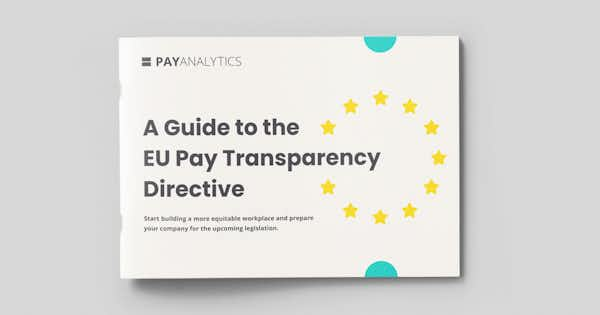Förberedelser inför EU:s direktiv om lönetransparens | Ladda ner vår e-bok gratis

PayAnalytics' reporting for Canada's Pay Equity Act
At PayAnalytics, we often talk about equal pay for work of equal value. Canada’s Pay Equity Act, implemented August 2021, takes a unique approach to achieving this objective. Typically, pay equity requirements focus on how men and women doing similar jobs are paid, but Canada now focuses on the value of the job to the employer.
The law requires federally regulated employers with 10 or more employees to identify different job classes in their workplace and figure out whether each job class is male-dominated or female-dominated. Using a gender-neutral system, they determine the value of each job class to the organization. Value is determined by the skill necessary for a job, the effort it requires, the responsibility involved, and the working conditions.
Then, the employer must calculate its compensation for each job category and compare how the compensation in female-dominated job categories stacks up against the compensation in male-dominated job categories with the same value. To do this, the employer can choose one of two methods:
- The equal average method compares the average pay for each female-dominated job class to the pay for similarly valued male-dominated job classes.
- The equal line method mathematically creates regression lines on a graph, allowing the employer to see whether the regression line for female-dominated job classes sits below the regression line for male-dominated job classes. (If so, then there is a gender-based pay gap that needs to be closed.)
PayAnalytics already analyzed equal pay for work of equal value through its job evaluation function, but the measurement and correction methods required by the Pay Equity Act were a recent addition. Since the law went into effect, we have developed, integrated, and optimized new functionality.
We are pleased to say that this new functionality is now available. Users are now able to measure and correct pay gaps down to the employee level using methods aligned with Canada’s Pay Equity Act legislation. These changes allow us to support Canadian employers in correcting long-standing, gender-based biases in how predominantly female job roles are valued and how women are compensated. We offer presets for Canada federal, Ontario, and Quebec.





